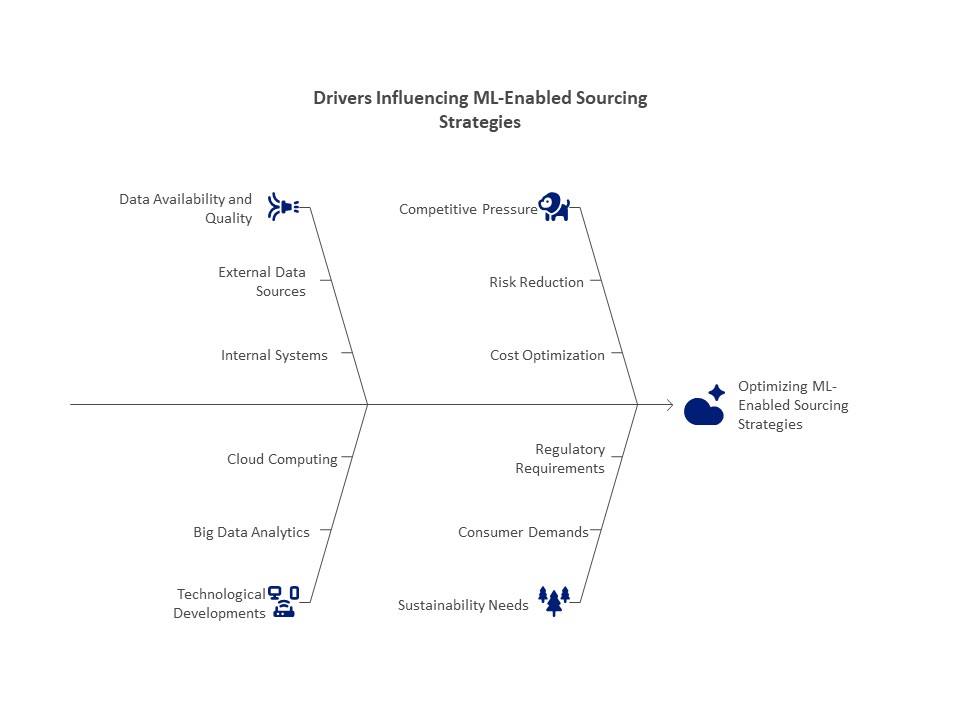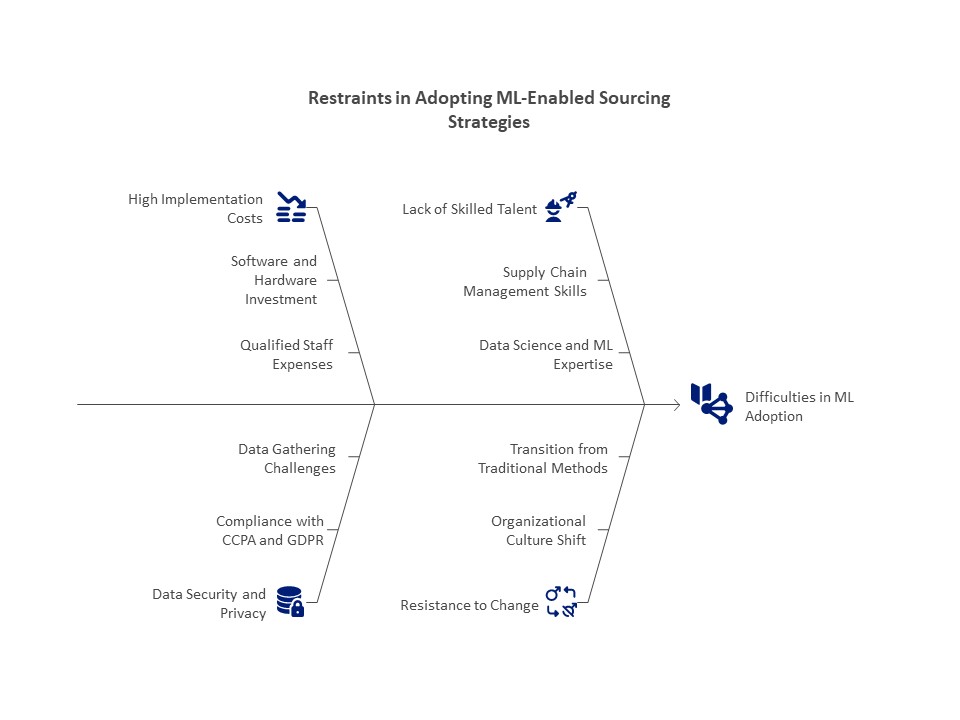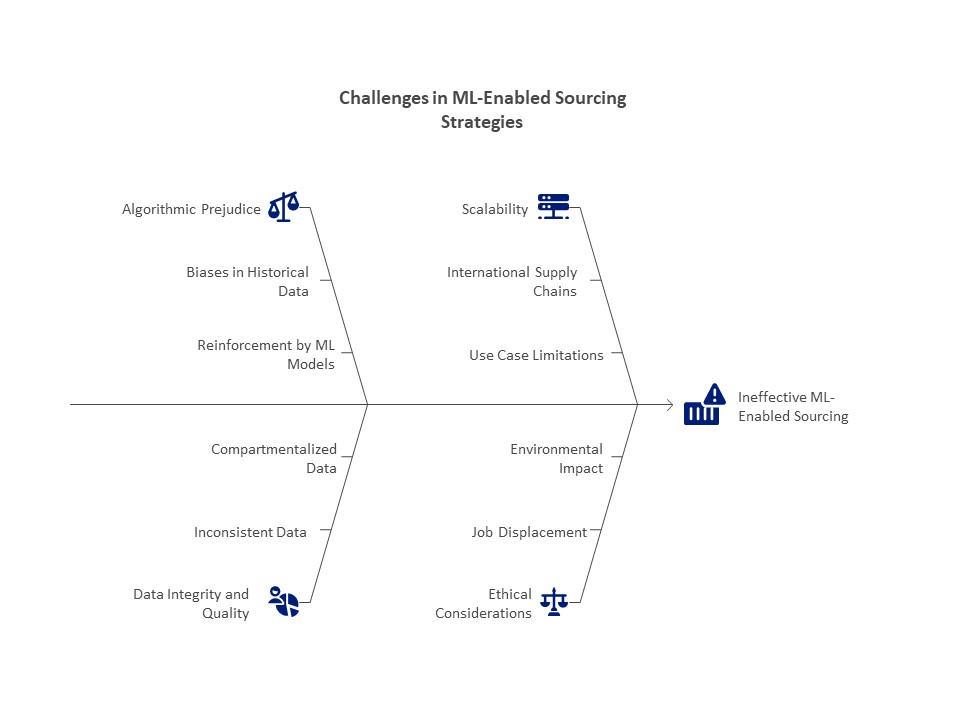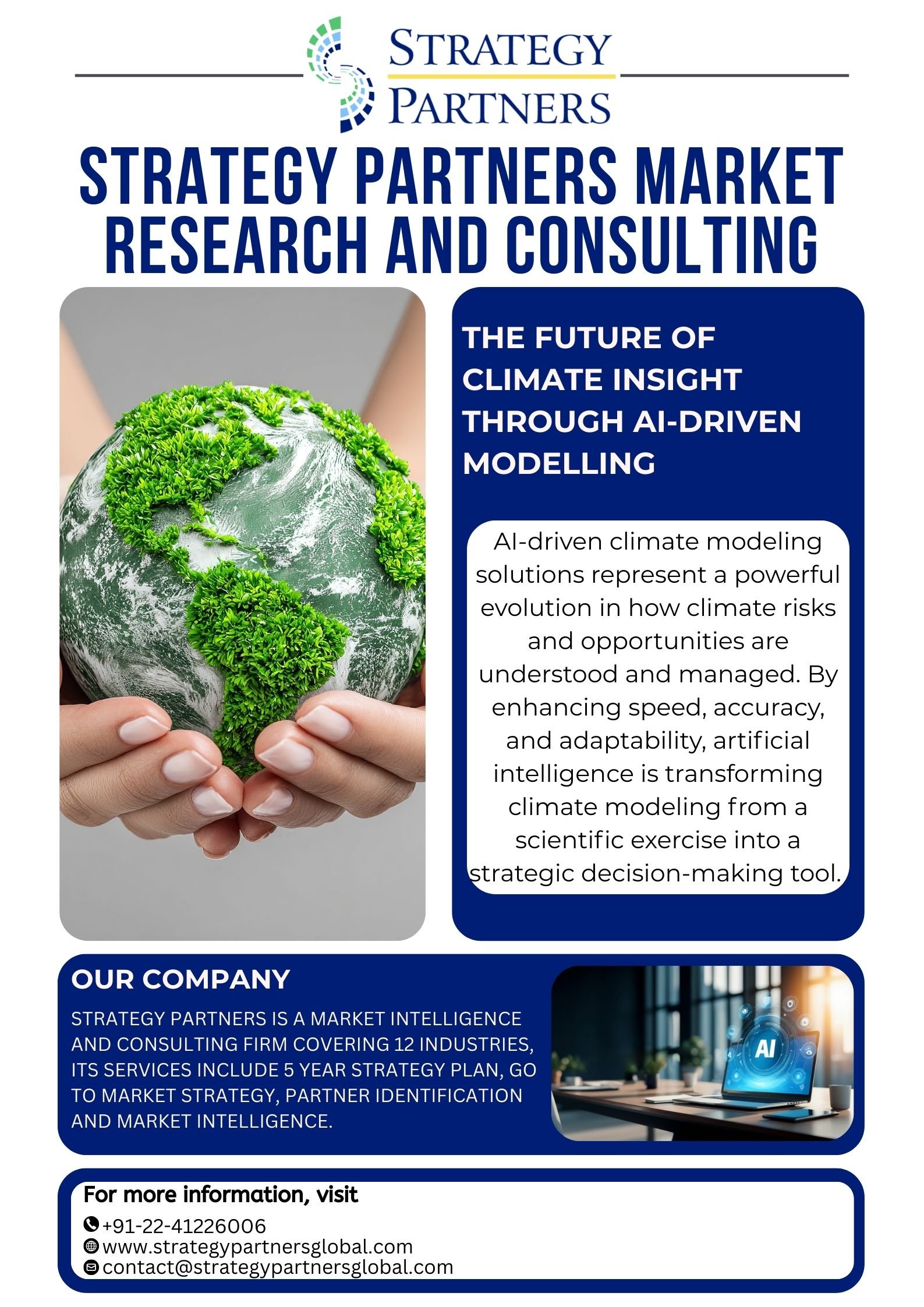Machine Learning enabled sourcing strategy:
The foundation of supply chain management is sourcing strategies, which dictate how businesses obtain goods, services, and resources to fulfill their strategic and operational objectives. Traditional methods have been revolutionized by the use of machine learning (ML) into sourcing strategies, which allows for data-driven decision-making, increased efficiency, and increased flexibility in response to changing market conditions.
Machine Learning enabled sourcing Market in the Past:
In the past, sourcing tactics were primarily manual and relied on historical data, human skills, and crude forecasting techniques. Businesses relied on pre-existing ties with suppliers, frequently giving preference to familiarity, closeness, or long-standing agreements over the best course of action. Procurement teams tracked inventories, managed supplier data, and negotiated contracts using simple technologies like spreadsheets or early enterprise resource planning (ERP) systems. These procedures were laborious, prone to mistakes, and unable to quickly adjust to changes in the market. Because there were no cutting-edge technologies available, sourcing choices were frequently reactive rather than proactive. Early sourcing techniques set the foundation for contemporary procurement procedures in spite of these drawbacks. The ultimate embrace of technology-driven solutions, including the use of machine learning, was made possible by the emphasis on supplier relationships and cost reduction.
Machine Learning enabled sourcing Market in the Present:
The extensive use of machine learning and advanced analytics has significantly changed the sourcing environment in the modern era. Large volumes of data are used by ML-enabled sourcing techniques to improve risk management, strengthen supplier relationships, and streamline procurement procedures. The incorporation of machine learning algorithms into supply chain systems, which allows businesses to make quicker and better decisions, is what defines the contemporary market. Through the analysis of intricate information, such as past sales, market trends, and outside variables like the weather, the state of the economy, or customer behavior, machine learning has completely transformed demand forecasting. With ML, supplier selection has also changed. Cutting-edge algorithms evaluate suppliers according to a variety of factors, including price, quality, delivery efficiency, and sustainability indicators. Machine learning (ML) systems can lessen the need for manual evaluations by recommending the best providers for particular needs based on an analysis of past supplier data and current market conditions. This data-driven strategy guarantees that sourcing choices are in line with corporate objectives and improves transparency.
Machine Learning enabled sourcing Market for the Future:
Looking ahead, ML-enabled sourcing tactics are expected to continue to evolve and expand. Machine learning technology will open up new avenues for improving procurement procedures and tackling new problems as they develop. Artificial intelligence (AI) developments, greater automation, and the growing focus on sustainability and ethical sourcing will probably influence the market in the future. The use of cutting-edge AI methods, such natural language processing (NLP) and deep learning, into sourcing strategies is one significant development. By evaluating paperwork, contracts, or even sentiment on social media to gauge a supplier’s reputation, deep learning models—which are particularly good at understanding unstructured data like text or images—could improve supplier evaluation.
Drivers of ML-Enabled Sourcing Strategies:
Availability and Quality of Data
The abundance of data from external sources, IoT devices, and internal systems offers a solid basis for machine learning applications. Better sourcing decisions are made possible by ML models that can produce precise forecasts and useful insights when given high-quality, structured data.
Developments in Technology
Implementing complex sourcing solutions has become simpler thanks to developments in big data analytics, cloud computing, and machine learning algorithms. By processing massive numbers, finding patterns, and automating difficult operations, these technologies help businesses become more efficient and scalable.
Pressure from Competition
Organizations are under pressure to reduce risks, increase efficiency, and optimize costs in a fiercely competitive global market. By facilitating quicker decision-making, cutting waste, and boosting supply chain resilience, ML-enabled sourcing tactics give businesses a competitive edge.
The need for agility
Organizations must be flexible in response to market volatility, which is fueled by elements such as geopolitical events and economic uncertainty.
Pay Attention to Sustainability
Organizations are being pushed to implement ethical sourcing practices by the growing consumer and regulatory demands for sustainability.

Restraints of ML-Enabled Sourcing Strategies:
High Costs of Implementation
ML system deployment necessitates a large investment in software, hardware, and qualified staff. Adoption may be constrained by small and medium-sized businesses’ (SMEs’) inability to pay these up-front expenses.
Data Security and Privacy Issues
Because machine learning depends on enormous volumes of data, data security and privacy are issues. Organizations have to make sure that laws like the CCPA and GDPR are followed, which can make gathering and using data more difficult.
Absence of Talent with Skill
Due of the intricacy of ML systems, supply chain management, data science, and machine learning skills are necessary. Organizations may find it more difficult to adopt and sustain ML-enabled sourcing strategies if they lack qualified personnel.
Opposition to Change
Organizational culture must alter in order to transition from conventional sourcing techniques to ML-driven strategies.

Challenges in ML-Enabled Sourcing Strategies:
Algorithmic Prejudice
Biases in historical data may be unintentionally reinforced by ML models, which could result in biased sourcing choices.
Integrity and Quality of Data
The quality of the data that ML systems use determines how effective they are. Inaccurate forecasts or less-than-ideal sourcing choices may result from inconsistent, partial, or compartmentalized data.
Scalability
It might be difficult to scale machine learning solutions across international supply chains, even while they are effective for certain use cases.
Moral Aspects to Take into Account
Ethical concerns are brought up by the use of ML in sourcing, such as the possibility of automation displacing jobs or the effects of data-intensive ML systems on the environment.

Source tactics have changed as a result of machine learning, moving from manual, reactive procedures to complex, data-driven systems. Predictive analytics, optimal supplier selection, and proactive risk management are now made possible by machine learning (ML), replacing the previous reliance on human experience and simple instruments.


